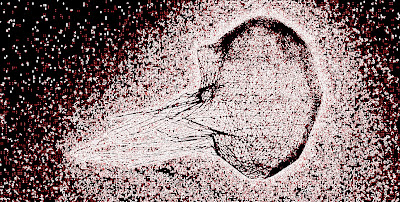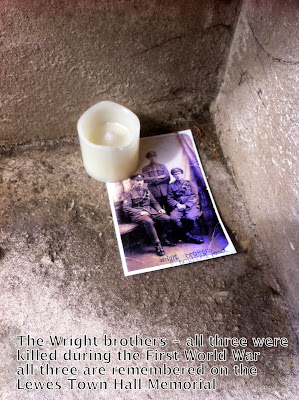
Fig. 1. A mash-up in Picasa of a 3D laser generated image generated at the Design Museum during their 'Digital Crystal' exhibition.
The image exists and is transformed by the presence of the observer in front of a Kinex device making this a one-off and an expression or interpretation of that exact moment.
'Working with dreams' and 'Keeping a dream journal' are taught creative problem solving techniques at the Open University Business School. I did B822 'Creativity, Innovation and Change' in 2012 (Henry et al 2010). I have the problem solving toolkit. I even got a hardback copy of VanGundy's book on creative problem solving.
Using your unconscious isn't difficult. Just go to bed early with a 'work' related book and be prepared to write it down when you stir.
I woke soon after 4.00am.
I'd nodded off between 9.30 and 11.30 so feel I've had my sleep.
Virtual bodies for first year medical students to work on, an automated mash-up of your 'lifelog' to stimulate new thinking and the traditional class, lecture and university as a hub for millions - for every student you have in a lecture hall you have 1000 online.
Making it happen is another matter.
I'm writing letters and with far greater consideration working on a topic or too for research.
"Nights through dreams tell the myths forgotten by the day." — C.G. Jung (Memories, Dreams, Reflections)
How to work with a dream or metaphorical image:
- Enter the dream
- Study the dream
- Become the images
- Integrate the viewpoints
- Rework the dream
Appreciating, reflecting, looking forward and emerging

REFERENCE
Glouberman, D. (1989) Life Choices and Life Changes Through Imagework, London, Unwin, pp. 232-6
Henry, J., Mayle, D., Bell, R., Carlisle, Y. Managing Problems Creatively (3rd edn) 2010. The Open University.
Isaacson, W. (2011) Steve Jobs. Little Brown.
VanGundy, A.B. (1988) Techniques of structured problem solving (2nd edn), New York: Van Nostran Reinhold.
